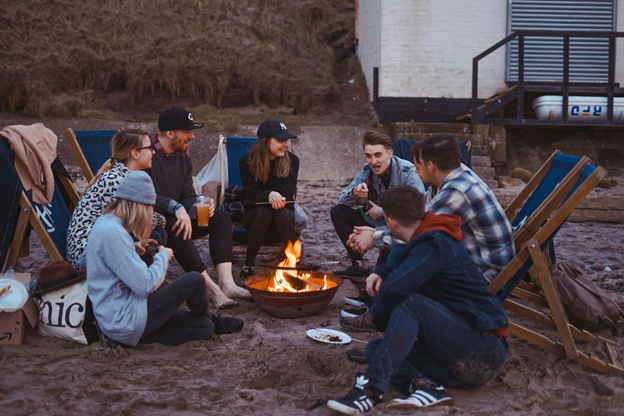Traveling is a privilege that allows us to explore new cultures, experience breathtaking landscapes, and create lifelong memories. However, with this privilege comes the responsibility to minimize our impact on the environment and respect the communities we visit. Leave No Trace principles provide a framework for responsible travel, guiding us to tread lightly and leave the places we visit as pristine as we found them. In this blog post, we’ll delve into essential Leave No Trace tips curated by local tour guides, who are stewards of their environments and advocates for sustainable travel practices.
Plan Ahead and Prepare
The foundation of responsible travel begins long before you set foot on your destination. Local tour guides emphasize the importance of thorough planning and preparation to ensure a minimal impact on the environment and local communities.
Research your destination: Learn about local regulations, cultural norms, and environmental concerns before you travel. Understanding the unique challenges faced by the area you’re visiting allows you to make informed decisions and adapt your behavior accordingly.
Pack responsibly: Pack light and bring only what you need. Minimize single-use plastics and opt for reusable alternatives such as water bottles, utensils, and bags. Consider the environmental impact of the products you bring and choose eco-friendly options whenever possible.
Travel and Camp on Durable Surfaces
Whether you’re hiking through pristine wilderness or camping in a designated site, it’s essential to minimize your impact on the natural environment. Local tour guides stress the importance of staying on designated trails and camping in designated areas to protect fragile ecosystems.
Stick to designated trails: Avoid wandering off-trail, as doing so can trample vegetation and disturb wildlife habitats. Follow signage and respect trail closures to preserve sensitive areas and prevent erosion.
Camp responsibly: If camping overnight, set up camp in designated sites whenever possible. Choose durable surfaces such as established campsites, rock, gravel, or snow to minimize your impact on vegetation. Practice Leave No Trace camping techniques, such as packing out all trash, minimizing campfire impacts, and leaving natural objects as you found them.
Dispose of Waste Properly
Proper waste disposal is crucial for preserving the pristine beauty of natural landscapes and protecting the health of local communities. Local tour guides emphasize the importance of packing out all trash and leaving no trace of your visit behind.
Pack it in, pack it out: Carry a trash bag with you and pack out all trash, including food wrappers, toilet paper, and hygiene products. Dispose of waste in designated receptacles or take it with you until you can properly dispose of it.
Practice proper hygiene: When nature calls, follow Leave No Trace principles for human waste disposal. Use designated toilets when available, or dig a small cathole at least 6-8 inches deep and 200 feet away from water sources, trails, and campsites. Pack out used toilet paper in a sealable bag to prevent littering.
Respect Wildlife
Encountering wildlife is one of the highlights of outdoor adventures, but it’s essential to observe from a respectful distance and avoid disturbing their natural behaviors. Local tour guides emphasize the importance of minimizing our impact on wildlife habitats and preserving their safety and well-being.
Observe wildlife from a distance: Use binoculars or a camera with a zoom lens to observe wildlife from a safe distance. Avoid approaching or feeding wild animals, as this can disrupt their natural behaviors and create dependence on human food.
Respect wildlife habitats: Stay on designated trails and avoid trampling vegetation or disturbing nests and burrows. Keep a safe distance from wildlife breeding or nesting areas, particularly during sensitive times such as mating season or when animals are caring for their young.
Be Considerate of Other Visitors
Responsible travel is not just about minimizing our impact on the environment; it’s also about respecting the experiences of other visitors and fostering a positive and inclusive outdoor community. Local tour guides stress the importance of practicing kindness, courtesy, and consideration towards fellow travelers.
Be mindful of noise: Keep noise levels to a minimum to preserve the tranquility of natural environments and allow others to enjoy the sounds of nature. Avoid loud conversations, music, or other disruptive activities, particularly in crowded areas or during quiet hours.
Share the trail: Yield to other hikers, bikers, or equestrians on multi-use trails, particularly when passing or overtaking slower-moving users. Move to the side of the trail to allow others to pass safely, and communicate respectfully with fellow visitors to prevent accidents or conflicts.
As travelers, we have the power to make a positive impact on the places we visit and the communities we encounter. By following Leave No Trace principles and incorporating responsible travel tips from local tour guides, we can minimize our environmental footprint, preserve natural landscapes, and foster a culture of respect and stewardship for the outdoors. Let’s embrace the spirit of responsible travel and leave a legacy of sustainability and conservation for future generations to enjoy.











